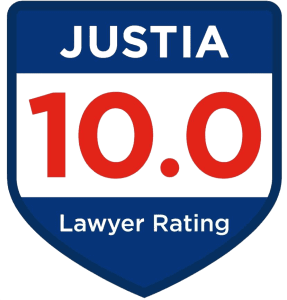- Published: February 20th, 2021
- Last Updated: July 26th, 2023

Personal Injury Lawyer for 30+ years. Nationally recognized Top 100 Trial Lawyer. Top Car Accident Lawyer & Motor Vehicle Accident Lawyer in Arkansas.
- Over $20 Million recovered in Medical Device Injury Lawsuits.
- Over $13 Million recovered in Car Accident Lawsuits and other Motor Vehicle Accident Lawsuits.
- Over $100 Million recovered in total on behalf of clients.
- Sean specializes in cases involving personal injuries, car accidents, motorcycle accidents, truck accidents, wrongful death, slip and falls, nursing home abuse cases, nursing home elopement cases, and more.
What Is Zantac?
Zantac came into the news when multiple users across the United States complained of adverse effects caused by the drug.
Lawsuits were filed, which turned into class-action lawsuits.
The US Food and Drug Administration quickly acted on it and recalled all Zantac and generic medications.
But if you’re unaware of all of these things and don’t know what Zantac is, this article is for you.
We explain everything from the ground up.

Table of Contents
What Exactly is Zantac?
Zantac is the brand name for a drug called Ranitidine.
Chemically it is known as ranitidine hydrochloride.
The drug is marketed as a medication to treat ulcers and associated problems.
Available in capsule form, it works by reducing the acid production in your stomach.
Thus, when your stomach is less acidic, it automatically leads to reduced heartburn and other symptoms caused by acid indigestion.
Besides ulcers, Zantac is also used to treat other stomach and throat conditions.
This includes erosive esophagitis, GERD or gastroesophageal reflux disease, Zollinger-Ellison syndrome (a rare illness caused by a tumor), among others.
Because medicine is available without a prescription, people take it to treat cough, stomach pain, and normal dysphagia.
Problems with Zantac
Based on the claims and advertisements, people willingly took Zantac to treat their heartburn.
There were 150 mg and 300 mg capsules available in the market.
But some reported having got diagnosed with some form of cancer.
Multiple people filed for financial compensation.
One of the companies that produce Zantac is Sandoz Inc., and the plaintiffs held it liable for the damages.
The FDA was quick to take action on this matter and banned the use of the drug indefinitely.
The agency ran an internal investigation to look into the matter.
After several tests, it was confirmed that Zantac capsules did contain a carcinogen called N-Nitrosodimethylamine or NDMA.
On April 1, it recalled all the prescription and other-the-counter Zantac from the market.
In its statement, the FDA explained that medications containing ranitidine, which also includes the Zantac drug, specifically contains a trace amount of NDMA.
Further lab tests clarified that it is a potent carcinogen.
Ranitidine, because of its molecular structure, can create NDMA inside your body once ingested.
And that’s the problem with Zantac and other products containing ranitidine.
There have been several recalls even before the one made by the FDA.
The first recall was made on September 23, 2019, by Sandoz after reports of potential contamination.
Similarly, several generic Zantac manufacturers have also issued similar recalls.
How Dangerous Is NDMA In Ranitidine?
NDMA is a potent carcinogen, as found in lab tests by the FDA.
This means continuous exposure can lead to cancer in some patients.
NDMA is a volatile chemical compound that’s found naturally.
But it’s also a byproduct of many industrial processes.
Especially in the chlorination of wastewater, NDMA is the main byproduct.
Valisure Online Pharmacy conducted a study in which it found ranitidine capsules can produce 304,500 ng of NDMA.
This is exceedingly higher than the FDA’s approved amount of 96 ng of NDMA per day.
So that’s how dangerous NDMA can actually be to regular users.
What To Do If You’re Taking Ranitidine?
Although the FDA has not advised individuals to stop taking the medication, it has merely recalled the products.
This means Zantac and other ranitidine products are no longer available over the counter.
If you or any of your family members are taking ranitidine to relieve heartburn, then you should stop taking it immediately.
The risk of Zantac developing cancer is already known.
Therefore, it’s best to be on the safe side and stop taking the medication.
But if it’s essential to your well-being, then you should consult with your physician as to what to do.
Ranitidine is recommended for short term use.
So if you’re using it once or twice and not too frequently, then you might consider taking them.
But long-term use is not recommended.
If you’re one of those individuals to develop cancer because of Zantac, then you can file a lawsuit to seek financial compensation.
A law firm often works with multiple plaintiffs.
Hence, you can join a class-action lawsuit to reduce the legal fees.
But you can always file individual lawsuits for seeking compensation.
Either way, you’d have to work with a law firm or an experienced class action lawsuit attorney to handle your case.
If you are looking for one, contact our office today to get in touch with our experienced Zantac lawsuit attorneys in Arkansas.
For more details, call our Rogers, Arkansas, injury firm at (479) 326-7734.
Practice Areas
- 3M Earplug
- Belviq
- Bladder Sling
- Camp Lejeune Water Contamination
- Defective Medical Device
- Hernia Mesh
- Hip Replacement
- NEC Infant Formula
- Medtronic Insulin Pump
- Paraquat
- Philips CPAP
- Roundup
- Talcum Powder
- Tylenol Autism & ADHD
- Zantac
- Bicycle Accidents
- Boat Accidents
- Construction Accidents
- Dog Bite
- Drug Injuries
- Electric Shock Injuries
- Nursing Home Abuse
- Nursing Home Bedsore
- Nursing Home Falls
- Nursing Home Infection
- Nursing Home Sexual Abuse
- Personal Injuries
- Premises Liability
- Slip and Fall
- Traumatic Brain Injuries
- Wrongful Death
- 3M Earplug
- Belviq
- Bladder Sling
- Camp Lejeune Water Contamination
- Defective Medical Device
- Hernia Mesh
- Hip Replacement
- NEC Infant Formula
- Medtronic Insulin Pump
- Paraquat
- Philips CPAP
- Roundup
- Talcum Powder
- Tylenol Autism & ADHD
- Zantac
- Bicycle Accidents
- Boat Accidents
- Construction Accidents
- Dog Bite
- Drug Injuries
- Electric Shock Injuries
- Nursing Home Abuse
- Nursing Home Bedsore
- Nursing Home Falls
- Nursing Home Infection
- Nursing Home Sexual Abuse
- Personal Injuries
- Premises Liability
- Slip and Fall
- Traumatic Brain Injuries
- Wrongful Death
You pay
Nothing
unless we win
Do You Have A Case?
Recent Legal Posts & Articles
Recent Legal Guides

Choose Us For Your Personal Injury Case
- Available 24/7
- No Upfront Fees
- Free Case Evaluation
- No Fees Unless We Win!















